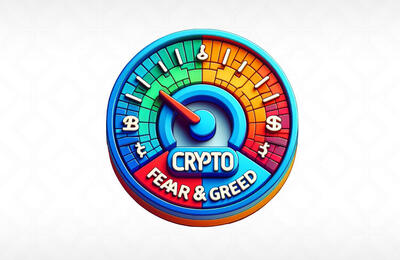
Philanthropy, i.e. our philanthropic thinking and behavior for the benefit of our fellow human beings, has been a fixed part of our existence since the beginning of human history, and this has basically not changed until today.
In Switzerland, too, in addition to the large organizations such as the Red Cross or SOS Children's Villages, there are many other charitable organizations that perform great, indispensable and in part unpaid work every day for the common good of us all. But of course, almost all of these charities rely on substantial donations from the public.
In a rapidly changing world, however, new opportunities for donations are constantly arising. Of course, it will continue to be possible to transfer donations from traditional bank accounts to those in need, but since the advent of digital currencies — such as Bitcoin — there are alternative ways to transfer funds to those in need. The so-called «cryptocurrency aid funds» emerged, which are now enjoying increasing popularity and are already quite widespread in some areas. Their advantages lie primarily in the fast and unbureaucratic nature of the transfers and the associated immediate effective help in crisis situations.
But can these digital funds really replace the old-fashioned way of donating? In this article, we provide you with a detailed look into the world of crypto donations and try to investigate the assumption of whether it will be the best, new way to donate funds to charity in the future.

Avoiding corrupt financial systems
The devastating accident in the port of Beirut in August 2020, caused by the explosion of thousands of tons of ammonium nitrate, which left several hundreds dead, destroyed almost the entire capital of Lebanon in just a few moments. And the shock waves not only shook the affected inhabitants of the country, but also brought the already ailing economy of the country to a complete standstill.
But even in this case, the inhabitants of the crisis-ridden country knew how to help themselves. Within just a few days, a cryptocurrency relief fund was set up by a group of Lebanese expatriates specifically for those affected by this disaster. The intention behind it was clear why cryptocurrencies in particular should be used: It was the only way to bypass the country's corrupt financial system and guarantee truly targeted aid to those who needed it most. The donors' plan was to use direct traders on the ground in Lebanon to fund local charities, such as the non-profit Beit el Baraka, which had already made a name for itself primarily by providing basic food and shelter to Syrian refugees and the homeless.
This fund — consisting exclusively of digital money — minimizes the risk, especially in crisis areas, of donations made seeping into the mire of corrupt financial networks and thus being lost. In addition, these donated funds are set up in such a transparent way that they can attract the interest of additional prominent supporters, such as that of the Palestinian author and economist Saifedean Ammous, who, incidentally, has also raised thousands of dollars worth of Bitcoins for the suffering population in this context.
Digital currencies, due to their decentralized and deregulated nature, can be difficult to fall into the hands of corrupt regimes, so they are more likely to reach the groups of people who are truly most affected.
This is probably the biggest advantage that cryptocurrencies can offer in emerging markets or war zones.
High user trust
Not only do crypto donations skillfully bypass corrupt political systems, but they also mostly benefit from the high level of anonymity provided throughout the crypto payment process.
We'll give you two real-world examples here: When ordering retail goods online or depositing funds into an anonymous casino — which, by the way, are gambling temples that only accept deposits with cryptocurrencies — users usually only need to provide their email address to make the transfer. This anonymity applies equally to a «crypto donation.» This type of financial transaction also has several advantages.
First, a donor may not want to disclose his or her identity for political or social reasons, because the donor may have sympathy for a particular cause but be discouraged from transferring financial amounts to a charity because of certain conditions imposed by his or her personal environment. If you're interested in exploring the world of online casinos and finding exclusive bonuses, consider visiting Stay Casino and looking for Stay casino no deposit bonus codes.
And secondly, every donation, no matter how small, can lead to the donor subsequently receiving permanent and unsolicited inquiries from other charitable organizations. These so-called «begging letters» can, of course, put some philanthropists in unintentionally difficult positions, either having to refuse requests for financial contributions or still providing funds to a cause they may not even want to support.
Factors such as these often result in donations to charities from wealthy individuals being less frequent than from the broader middle class. This is where the new anonymity in payments could make generous donations more likely. Cryptocurrencies are by far the best method for this.

Cost-effective and fast
Not only have small individual transfers from private donors realized the aforementioned benefits in cryptocurrency donation transactions, but large amounts can also be transferred directly from nonprofit organizations to those in need without incurring high bank fees when transferring funds.
Early on in the COVID-19 pandemic, UNICEF announced its largest crypto investment to date in technology companies dedicated to fighting the virus. Eight companies in seven developing countries each received 125 ETH («Etherum»), the equivalent of nearly $28,600 at current exchange rates, primarily to develop improved medical and distribution methods. In response, UNICEF reported in an official release that the transfers «took less than 20 minutes and cost less than $20» — so in total, there were only fees of 0.00009% of the amount transferred — an incredible savings compared to traditional money transfers. The donations thus go into the right, because charitable channels, and are not stuffed as fodder into the maws of the large banking institutions.
Above all, the enormous transfer speed is of crucial importance in emergencies. Donors can send funds to far-flung disaster areas in a matter of minutes. Take, for example, initiatives like those of Visa Card and Bitnation — this is a debit card loaded with cryptocurrency that is given to refugees and can be used primarily to purchase essential food and medicine. Such measures «cut out the middle man» and bring aid directly to where it is needed most — because: if you help quickly, you help twice.
An imperfect yet brave new world
But where there is a lot of light, there is also a lot of shadow; because the above-mentioned advantages of cryptocurrencies could also quickly turn into the very big disadvantages. After all, a lack or even complete absence of central authority means that there is no real accountability should a transaction ever go wrong. And should the transferred funds somehow end up in the wrong channels, they will almost certainly be misused by the recipient, rather than those amounts then being properly directed to the addressed charities.
And currently, cryptocurrencies are used by only a vanishingly small portion of our population, in most cases this form of payment has not even penetrated the consciousness of all individuals. While major charity fundraisers rely on the donations of millions of people, cryptocurrencies are still relatively unknown to the majority of the public. As long as this is the case, it is naturally difficult to see cryptocurrencies as the most popular method of donation. It will be some time before digital currencies will be able to surpass the volume of donations from traditional campaigns, which is now (still) channeled through traditional bank transactions.
However, the ever-increasing adoption of cybercurrencies like Bitcoin means that the cryptocurrency wave will continue to gain traction in the world of philanthropy. Donors previously deterred by corrupt regimes and costly wire transfers now have an anonymous, cost-effective, and most importantly, fast way to get vital aid to where it is needed most. While the financial banking system struggles to cope with the immense changes brought about by the COVID-19 pandemic, cryptocurrencies are already well on their way to becoming leaders in the brave new world of money transfers.













